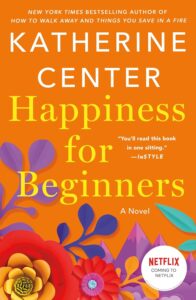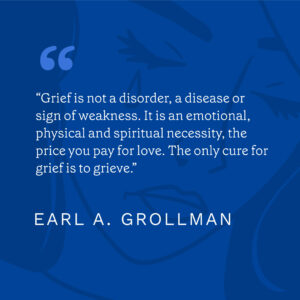5 Books You Need to Read This National Book Month
By Taylor Transtrum & Ellie Luciano

Calling all bookworms! National Book Month has arrived—the time to celebrate literary magic, page-turning words and the joy of reading! Our therapists know first-hand the power that books can hold when it comes to our mental health—and lucky for you, they’ve decided to share their favorite fiction and nonfiction book selections to devour this October. Within each page you’ll find unique perspectives, invaluable lessons and journeys of introspection. Your new favorite book awaits you!

The Body Keeps the Score: Brain, Mind, and Body in the Healing of Trauma
Author: Bessel van der Kolk, M.D.
Selected by Abby Fink, LMSW, Clinical Program Manager, Group Therapy, Valera Health
Raved about by psychologists everywhere, this #1 New York Times Best Seller is a poignant read that offers keen insights into the science and research behind post traumatic stress disorder (PTSD), innovative treatments, pathways to recovery and personal stories about PTSD survivors sure to tug at your heartstrings.

Get Me Out of Here: My Recovery from Borderline Personality Disorder
Author: Rachel Reiland
Selected by Kelly Finn, LCSW, Supervising Therapist and Team Lead, Valera Health
Get Me Out of Here is a gutting memoir that unveils the raw truth of what borderline personality disorder (BPD) feels like from the inside. Sparing no details, Rachel Reitland paints an intricate picture of how her BPD affects every aspect of her life. Even in Rachel’s darkest moments, readers of this book will find hope in her story and discover that with ongoing treatment and determination, healing is possible.
Bonus Read:
“For the comic book readers out there, many of the Wonder Woman graphic novels touch the topics of grief, forgiveness, and diversity—all of which can speak to those of us who struggle with mental health issues in our life.” — Kelly Finn, LCSW, Supervising Therapist and Team Lead at Valera Health

Author: Jeannette Walls
Selected by Victoria Abruzzo, LCSW, Associate Director of Clinical Operations and Supervising Therapist, Valera Health
Described by Entertainment Weekly as “nothing short of spectacular,” The Glass Castle tells the true story of the eccentric yet dysfunctional upbringing of Jeannette Walls. Raised by free-spirited and nomadic parents, Jeannette and her three siblings learned to fend for themselves at a young age, having only each other to lean on throughout their abnormal childhood. In an attempt to forget her difficult past, Jeannette buried these roots for two decades. Now, she’s ready to speak her truth in page-turning detail.

Author: Katherine Center
Selected by James Riter, LCSW, Supervising Therapist, Valera Health
After getting divorced at 32, Helen Carpenter struggles to piece her life back together. At the recommendation of her brother Duncan, Helen signs-up for an intense wilderness survival course in the backwoods of Wyoming. Despite her best wishes, it ends up being another disaster on top of a year filled with a seemingly endless stream of disasters. But within the struggle, Helen learns the beauty that can come when faced with life’s hardest challenges.
Brené Brown, professor and New York Times bestselling author, sings praise for this heartfelt novel: “This wise, delicious, page-turning novel won’t let you go. Katherine Center writes about falling down, growing up, and finding love like nobody else. You can always see yourself and the people you love in her characters and their stories.”

Author: John Green
Selected by Ellie Luciano, Clinical Intern, Valera Health
“Turtles All the Way Down is a favorite of mine as it’s eye opening, relatable and extremely descriptive. This story is an honest reminder that everyone is going through something whether you can see it or not, and every person’s mental health experience is uniquely theirs. Green does a phenomenal job at putting the harsh reality of living with anxiety and OCD into words through the main character Aza. Aza encompasses what OCD can feel like for many individuals and portrays what goes on in the mind of someone suffering with OCD and anxiety incredibly well—all through the in depth descriptions of compulsions, thought spirals, relationships, and dialogue.” — Ellie Luciano, Clinical Intern, Valera Health
You can find all of these fantastic book selections online, in stores or at your local library. For even more great reads, Valera Health offers a virtual book club centered around mental health through engaging discussions and book selections. Visit our group therapy page and calendar to join the next session or to explore other therapy groups (currently available in NY and MA).
To schedule a free consultation with a Health Connector who can help you get started with group therapy, individual therapy or psychiatry/medication management, click here.





